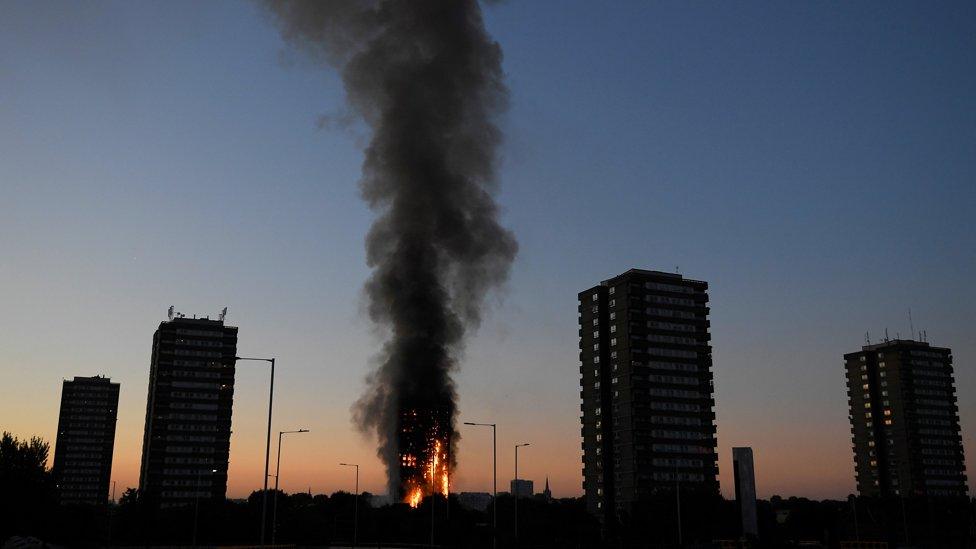Grenfell Tower residents told to 'stay put for too long'
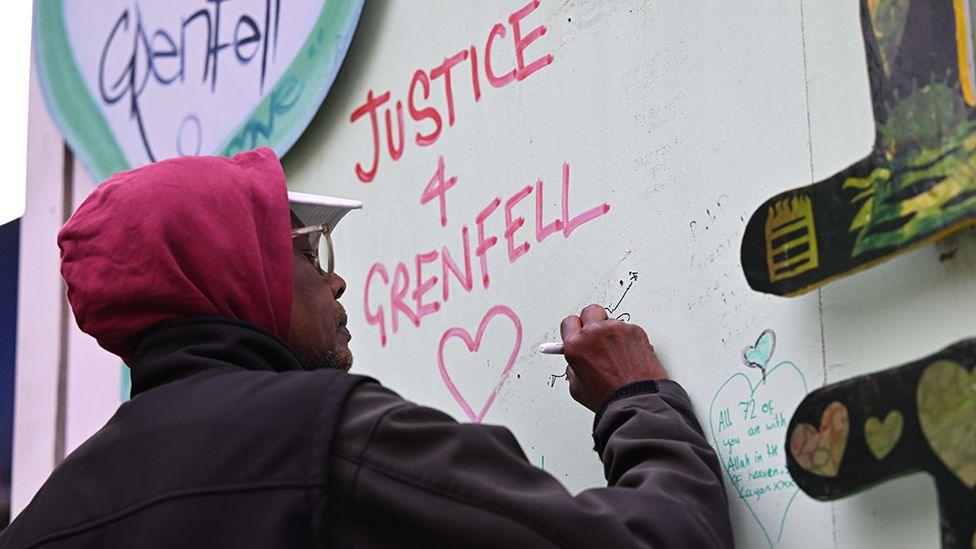
People attended a service of remembrance on the seventh anniversary of the blaze in London on 14 June
- Published
Residents of Grenfell Tower were told to “stay put for too long” during the fire which destroyed the building, London Fire Brigade (LFB) boss Andy Roe has told the BBC.
Mr Roe - who revoked the "stay put" advice minutes after taking charge at the scene - acknowledged the policy “would have had an impact on people's decision making”.
Seventy-two people died as a result of the fire at the West London tower block, which broke out in the early hours of 14 June 2017.
A public inquiry has been hearing evidence about the causes of - and response to - the fire since September 2017. Its final report is due next month.
Just before 01:00 a fire broke out in the kitchen of a fourth floor flat at the 23 storey tower block in North Kensington.
The fire was reported and 999 call handlers working for the LFB told residents not directly affected by fire, heat or smoke to remain in their flats until help arrived. But as they were issuing this advice, the fire was spreading rapidly.
The effectiveness of “stay put” - which remains the policy in the event of fire in most high-rise buildings - relies on a building being properly constructed. Regulations should prevent fire spreading from one flat to another for at least 60 minutes.
This was not the case at Grenfell Tower. As part of a refurbishment, combustible cladding and insulation had been fitted on the outside of the building, and in less than 20 minutes, the fire climbed 19 storeys to the top of the tower, fuelled by the flammable materials.
The Grenfell Tower inquiry has already found “many more lives” would likely have been saved if incident commanders had told residents to evacuate an hour earlier.
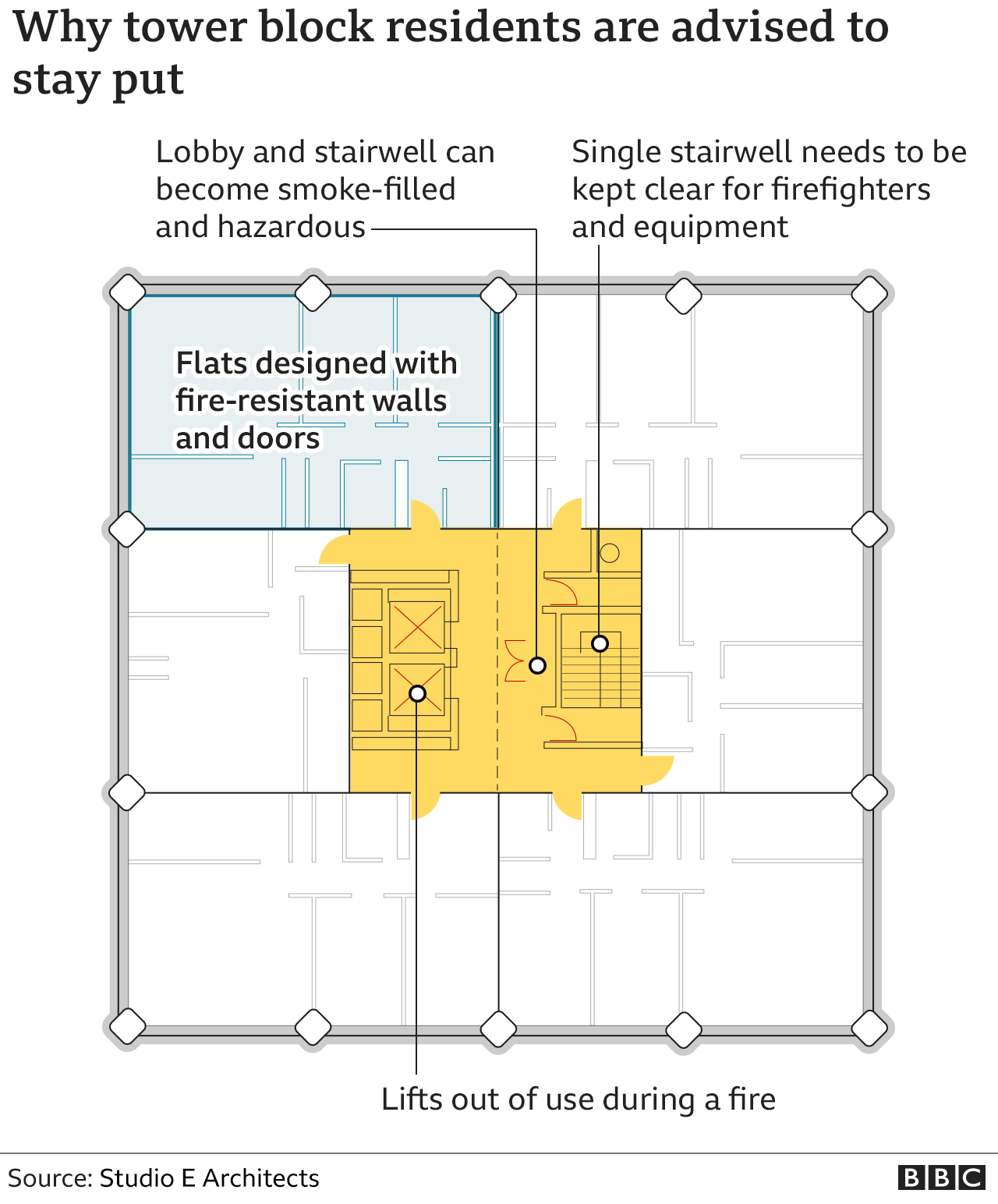
Speaking to the BBC podcast Grenfell: Building a disaster London Fire Commissioner Andy Roe - who was assistant commissioner at the time of the fire - spoke of his disbelief and horror when he arrived at the scene at 02:30 to find three sides of the building alight.
“It was a shock - people were screaming,” Mr Roe said. “I could look into the building and see that fire was a long way inside it. People hanging from windows. Unbelievable...people on the ground as well.
“I was in my fire brigade uniform, so people were stopping me and saying, ‘What's happening? My mum's in there, my brothers and sisters are in there’.”
What happened at Grenfell Tower?
- Published29 October 2019
No Grenfell charges until end of 2026, police say
- Published22 May 2024
As the most senior officer on site Mr Roe took over as incident commander, and at 02:47 - one hour and 53 minutes after the first emergency call - gave the order to revoke the "stay put" policy. From then on, anyone calling 999 was told to get out of the building.
“What I must say, out of respect to the families, is that people were advised to stay put for too long,” Mr Roe said.
Revoking the "stay put" advice was “an easy decision to take”, he said, but would have been more difficult to make earlier in the night, due to the risks of evacuating people through smoke logged stairwells.
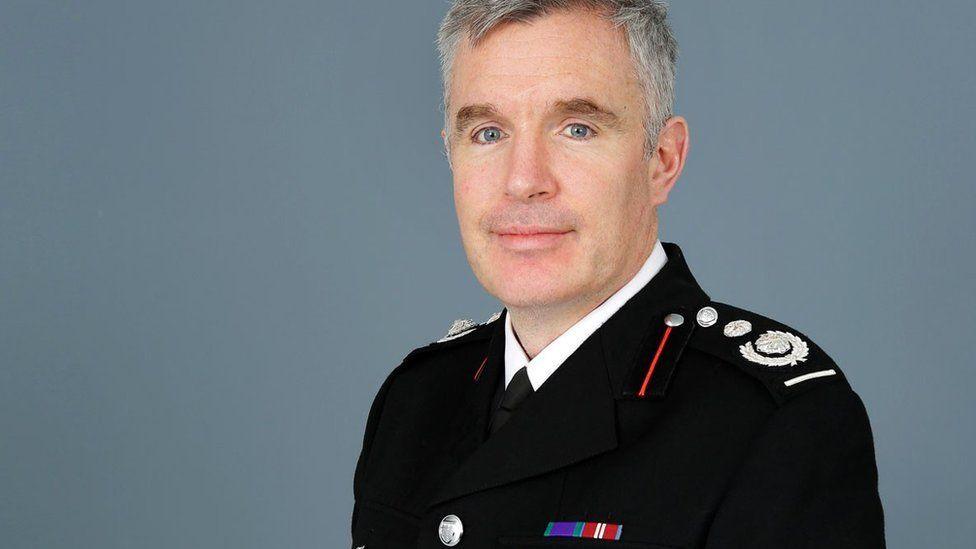
LFB commissioner Andy Roe says Grenfell's residents were advised to stay put for too long
Munira Mahmoud, a Grenfell resident who left the tower with her children on the night of the fire, last spoke to her friend Rania Ibrahim, who lived on the 23rd floor, at around 03:00.
Call handlers had advised Rania “the safest place for you at the moment is in the flat” - and she had decided to remain there.
Munira urged Rania to leave, but Rania said she would not be able to survive. Rania was coughing, and by now the tower's hallways and stairwells were thick with black smoke.
Rania Ibrahim and her two daughters, Hania, age 3 and Fethia, age 4, died in their flat.
Reflecting on the guidance given to Grenfell Tower residents by the London Fire Brigade to remain in their homes, Mr Roe told the BBC: “We're all talking about this with the benefit of hindsight, but we know that advice would have had an impact on people's decision making.
"It would just be so wrong to the families, to those who lost their lives, not to recognise that.”

Listen to Grenfell: Building a disaster on BBC Sounds.
Missed opportunities, unheeded warnings and the failure of a state to protect its citizens. What a fire in West London that killed 72 people shows us how Britain works, and doesn’t.
- Published12 June 2022
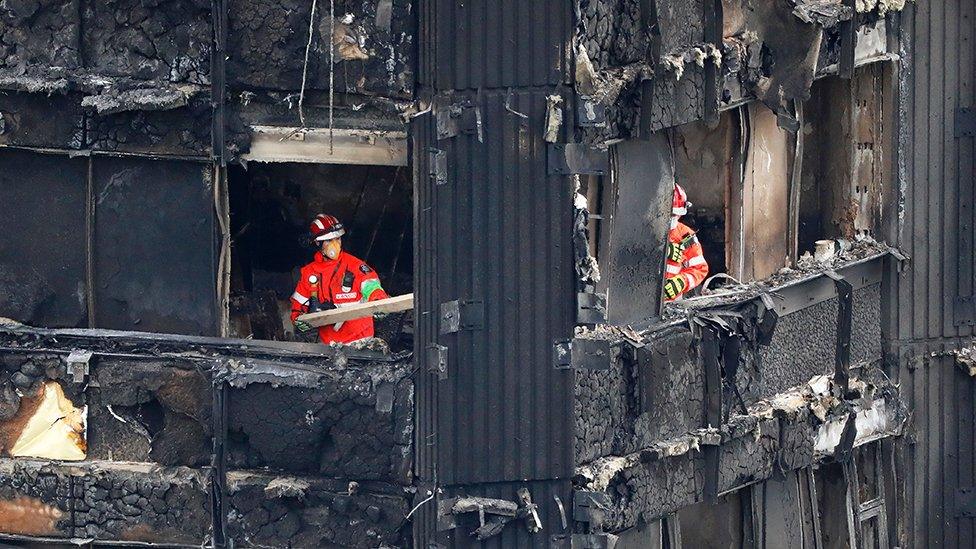
- Published8 June 2018
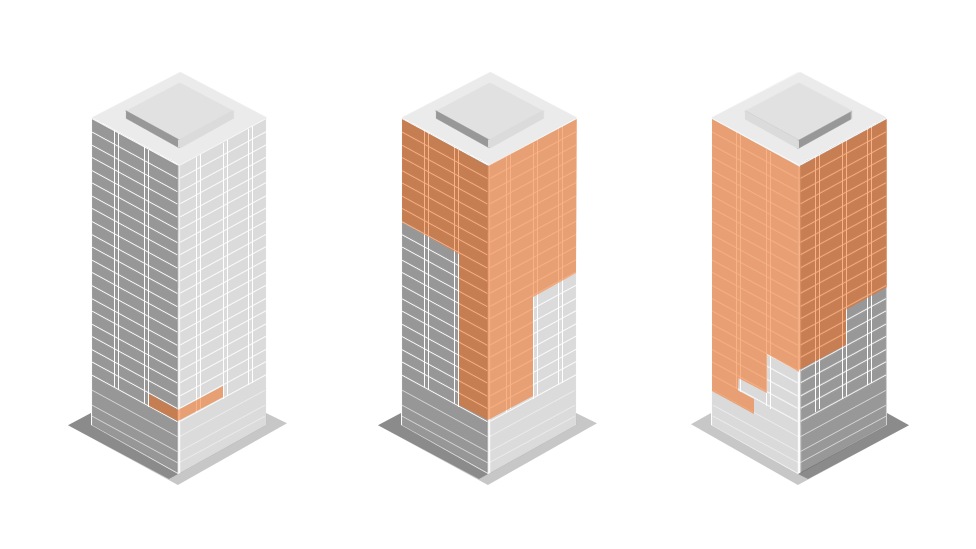
- Published25 March 2019
